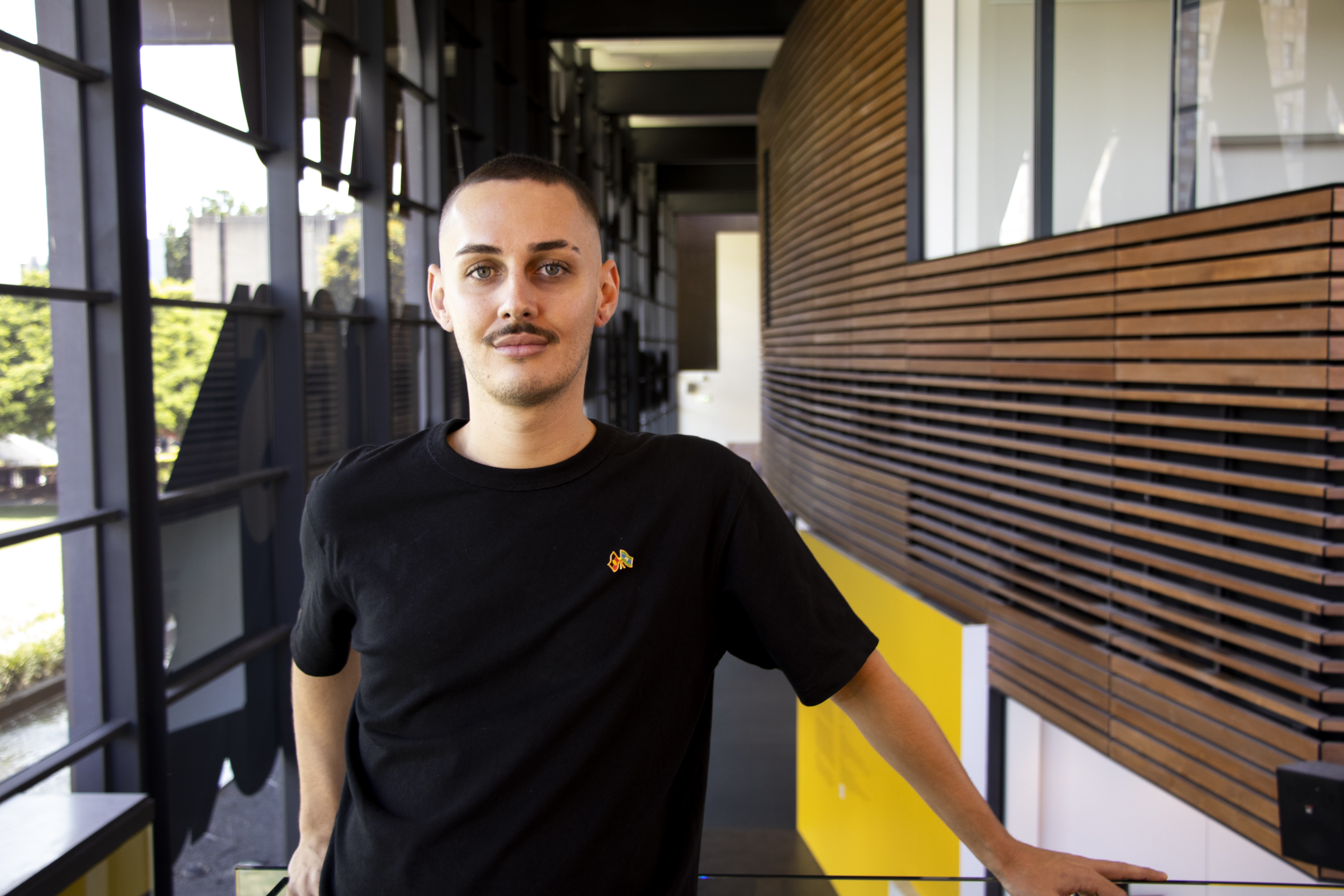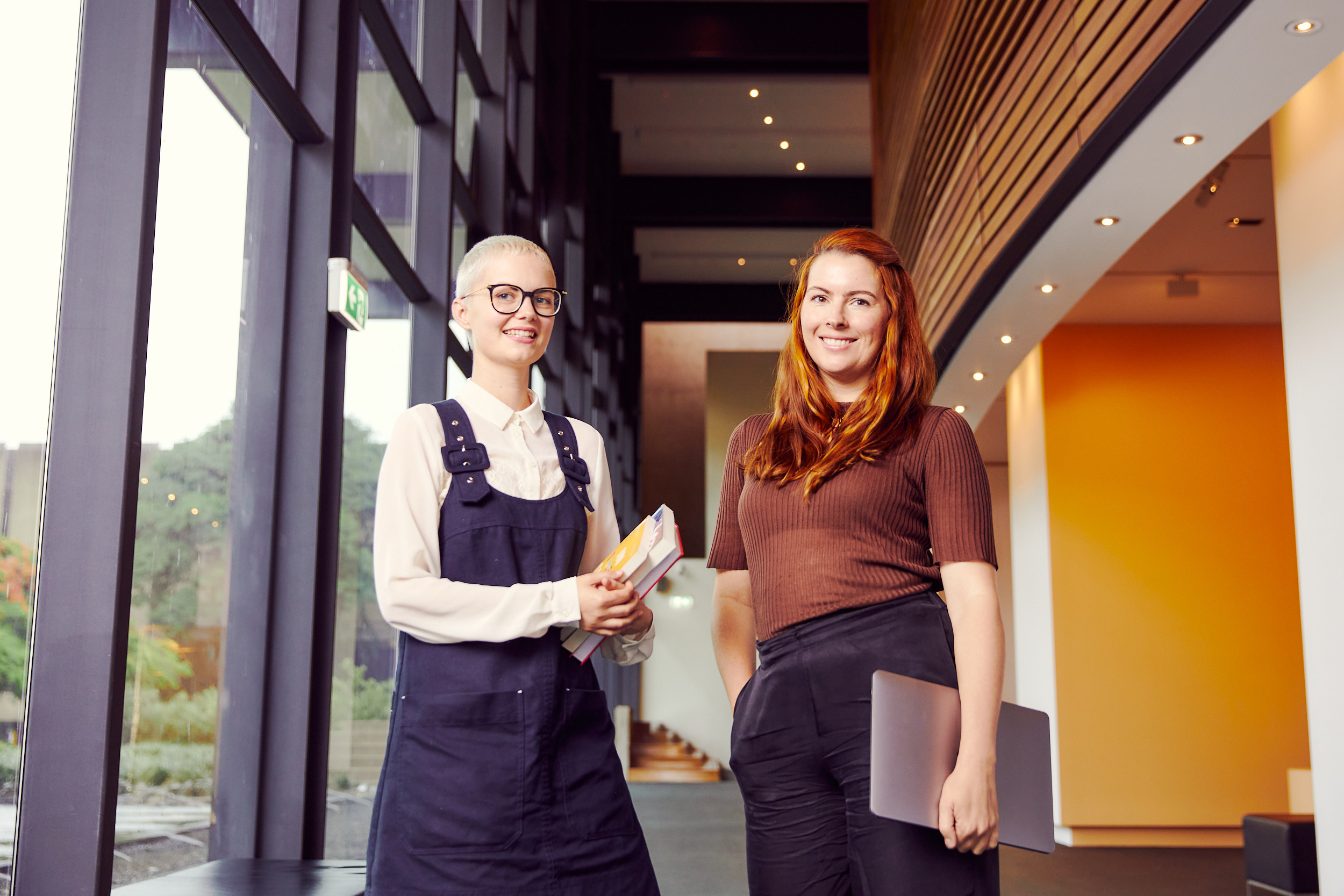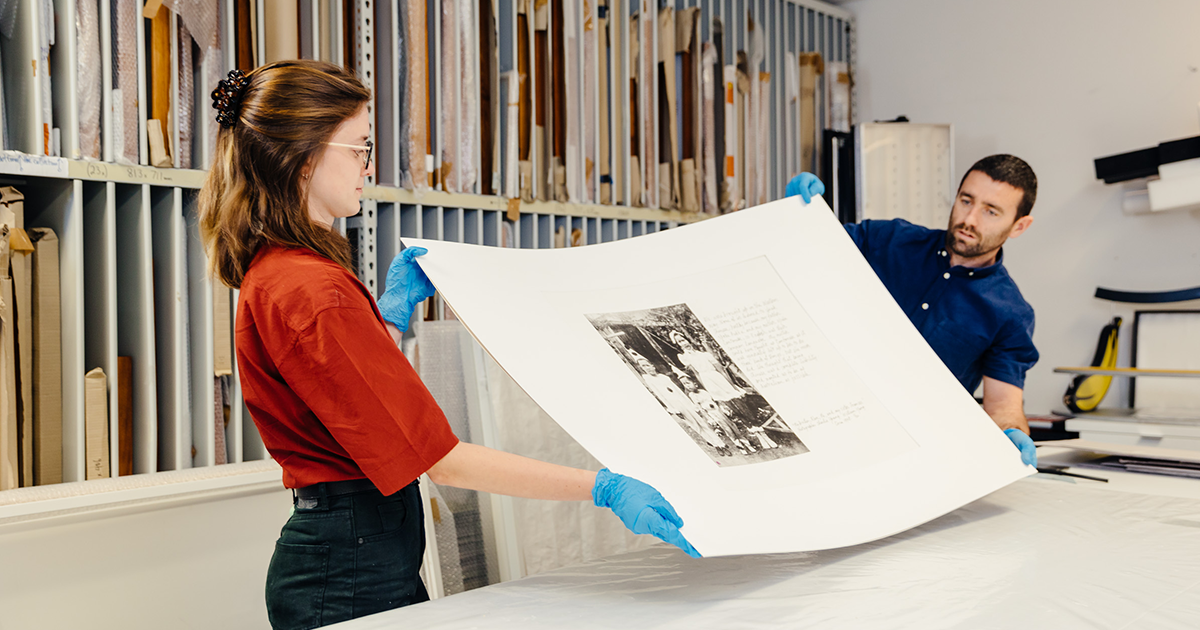
This post is written by Art History graudate Adam Ford, who worked with the Art Museum as an Intern in 2021.
When I applied for the 2021 Kinnane Endowment Fund Internship, I had zero professional experience and perhaps only a vague idea of what it was that I wanted to do. However, what I lacked in experience I made up for in enthusiasm, and I was able to translate my obvious passion for the arts into my application. To my surprise, I was successful! As someone who thought their lack of experience precluded them from being the “right” candidate, I can certainly speak to the process of applying for the internship and can offer some tips and advice for how to navigate the application and interview process.
Do some research
From the outset, my first piece of advice is to be specific: do a bit of research into what the internship is and how it is being delivered. Ask yourself: what kind of work does this internship entail? What would I like to achieve with this internship? Have a clear idea of the type of career outcomes or professional pathways you desire. How do you think the internship may assist you in that?
As a training institution, the UQ Art Museum doesn’t expect you to know this immediately – I certainly didn’t – but they are looking for students who have taken the time to think these things through. Speaking from experience, I would also suggest that you be intentional with your application. Perhaps consider if applying for a visitor engagement internship is the right thing for you, if you desire to work as a curator. That is not to say don’t apply but to consider how a visitor engagement internship will enhance your curatorial practice.

Tell a story and share your passion
With that in mind, tell a story. When you have a clear idea of what you want to be doing and how you think the internship will help you do just that, begin to think ambitiously. If you dream about working with the collection of the National Gallery of Australia as a conservator, say so! The UQ Art Museum are interested in your ambitions because they see the merit of being a training institution as being able to invest directly in your career.
Keep in mind that opportunities that present themselves arise not only from building your professional skillset, but also from the people you meet and the networks you will form. Over the course of my internship, I have met artists, arts workers, academics and other industry figures that I now count not only as mentors, but as friends. All of these relationships have been made possible by the UQ Art Museum, who facilitate and encourage relationship building and professional networking.
Similarly, if there’s someone who you admire or look up to, then let UQ Art Museum know! I remember in my interview, despite my uncertainty, naming Hetti Perkins as an inspiration and someone whose career I could only hope to emulate. Locating your desires and ambitions in many ways shows that you are serious, considered and thoughtful. Don’t be afraid to speak what you want into existence.

How do your values align?
Another piece of advice I offer is to consider how your values align with the UQ Art Museum. The UQ Art Museum is a site of progressive and creative enquiry and facilitates challenging and engaging exhibitions. Do you seek to expand your knowledge? Do you seek ways in which you can challenge commonly held beliefs or biases? Perhaps you are drawn to ways in which we can evolve our understandings of things, through shared and mutual acts of learning. These are important to consider, given that the UQ Art Museum exists at the forefront of constantly seeking to evolve and progress.
For our current exhibition, Oceanic Thinking, the Art Museum has achieved carbon neutral status. Sustainability within our institution and with the industry at large is important, and something we see as being non-negotiable moving into the future. Much the same can be said for how the Art Museum values its people. As a queer Indigenous person, I have felt included and respected, and have never felt that my perspectives were minimised or ignored. The values of kindness and respect that have been extended to me are extended, and are also cemented as practice, towards other marginalised peoples. There is a huge push within the UQ Art Museum to facilitate accessibility as much as possible and for as many people as we can; inclusivity, accountability and participation are key drivers of what makes the institution such a welcoming and safe place to work.
Don't underestimate the power of proof-reading
It goes without saying, but another thing I recommend is proof-reading. Never underestimate the power of having someone proof and edit your work. Trust me, as the person who misnamed the registrar responsible for overseeing the interview process. It may seem like a given, but an edited application demonstrates that extra mile of detail and can truly be the thing that sets you apart from other applicants. The finer points of your application may be forgotten, but your ability to submit a well-written, grammatically correct and striking application will not.
Think about your transferable skills
And lastly, I would like to encourage anybody who thinks they lack the necessary experience or who may doubt themselves and their ability to be successful in this role to apply. I was in your boat and know first-hand how overwhelming it can be. When I applied, I didn’t necessarily have a lot (or any) professional experience, but I was able to tailor my own experiences to fit the brief. I described how I had recently purchased an artwork and what steps I took to safeguard it. This included explaining how I handled the object, where I got it framed, and the reasons why proper care is important in the Queensland climate. I was able to make the necessary links between my experience and what I knew of the role of registrar to make the case for my suitability. And again, it paid off!
The team will be keen to know what transdisciplinary skills you possess or how you can utilise transferable skills to make the most out of your internship. They’re open and flexible to all points of experience and give you so much room to improvise or be creative in your approach. Don’t feel limited by what you don’t know, but comforted by all that you’re going to learn.



